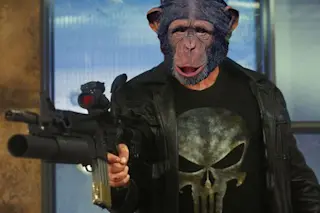When Delta Airlines refused to let Arijit Guha board a plane because his T-shirt made passengers uncomfortable, others made Delta aware of their outrage. When Samsung infringed Apple’s copyright, a jury of independent peers awarded Apple more than $1 billion in damages. When Republican Todd Akin claimed that women could stop themselves from becoming pregnant if raped, people called for his head.
These recent events all illustrate a broad human trait: we seek to punish people who do wrong and violate our social rules, even when their actions don’t harm us directly. We call for retribution, even if we have nothing specific to gain from it and even if it costs us time, effort, status or money to do so. This “third-party punishment” is thought to cement human societies together, and prevents cheats and free-riders from running riot. If you wrong someone, and they’re the only ones who want to ...














